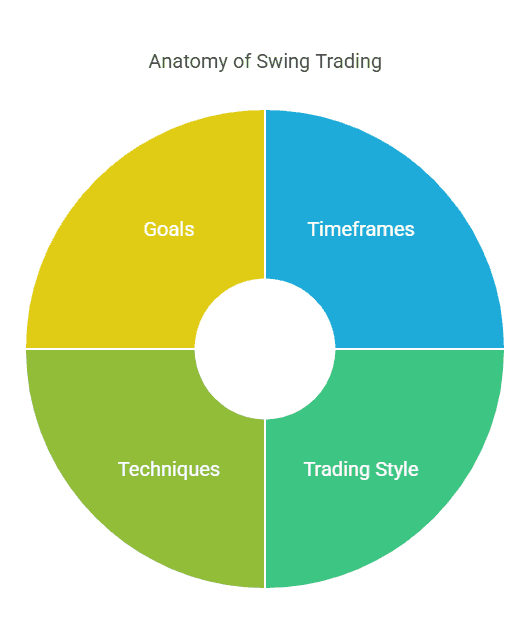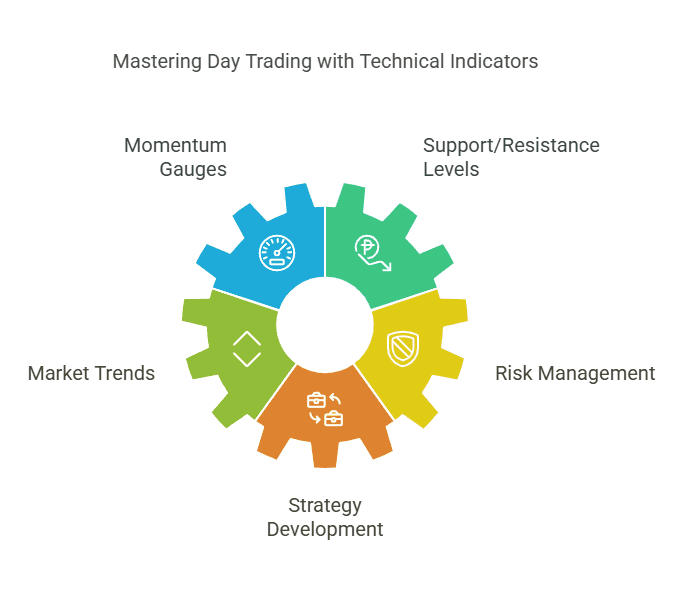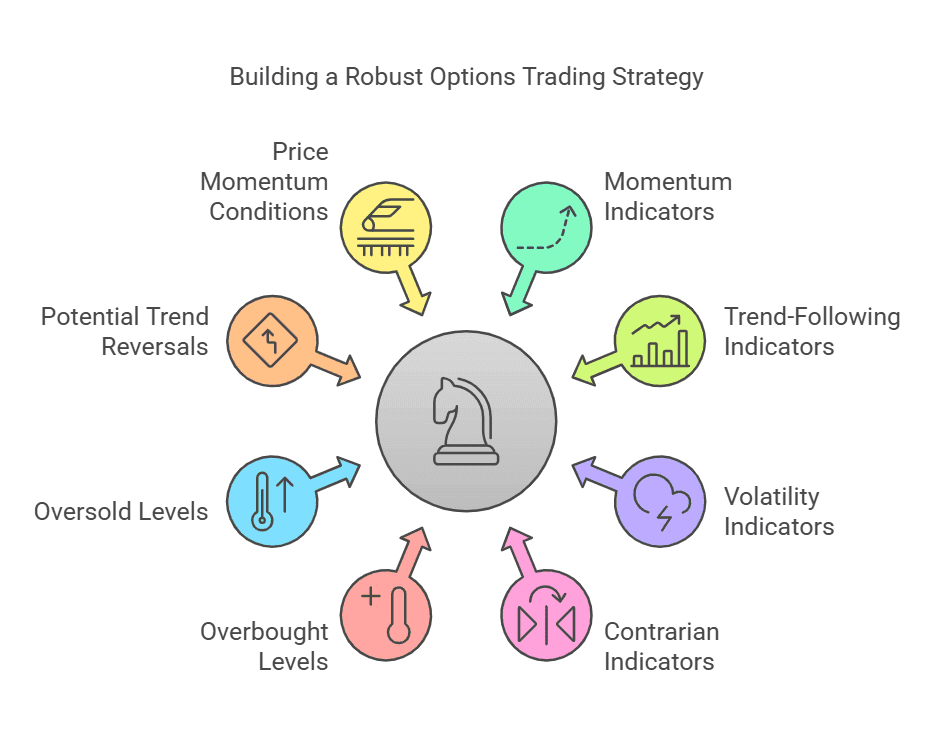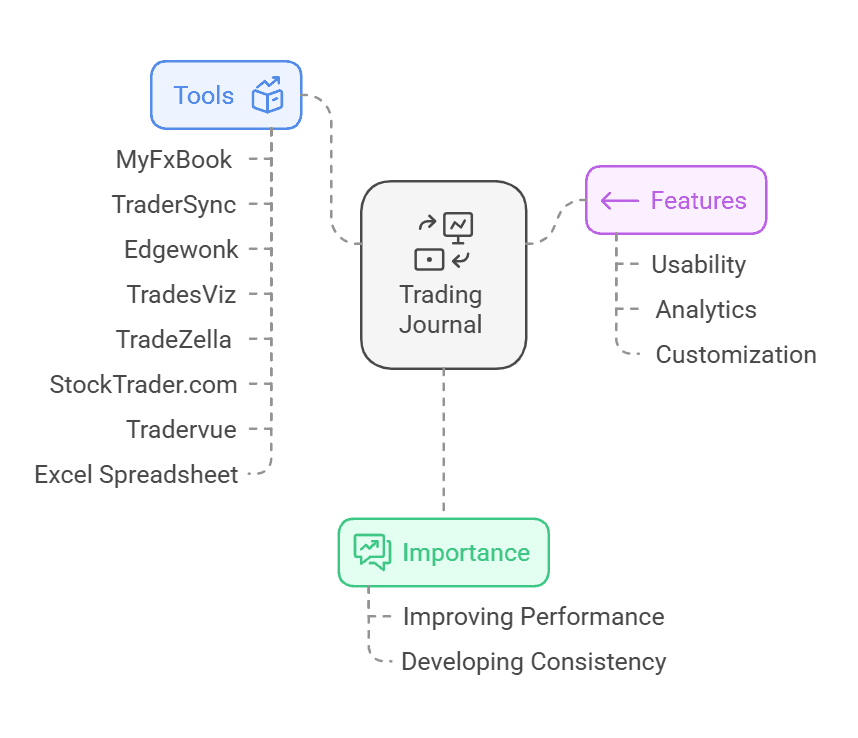Table of Content
Best Stocks in AI to Watch in 2025: Backtest Results & Strategy Tips
By Vincent NguyenUpdated 161 days ago

What Makes AI a High-Growth Sector for Investors?
When it comes to investing, best stocks in AI represent a promising gateway to the future of technology. Artificial intelligence (AI) has steadily transformed how businesses operate, making it a pivotal industry for both seasoned and beginner investors. From self-driving cars to advanced data analytics, AI’s footprint stretches across virtually every sector healthcare, finance, e-commerce, robotics, and beyond.
In this comprehensive beginner-friendly guide, we’ll explore the current landscape of AI stocks, discuss factors to consider before investing, spotlight leading AI-focused companies, and provide three example backtests. By the end, you’ll not only understand why the best stocks in AI can offer both growth and diversification opportunities, but also gain actionable insights on how to navigate this fast-growing market with confidence.
Understanding the AI Boom
AI continues to capture headlines, investor attention, and significant capital. With a market that’s expanding at an impressive compound annual growth rate (CAGR), the global AI sector is projected to reach hundreds of billions of dollars within the next decade. Its influence stems from the convergence of several key factors:
1. Big Data and Advanced Algorithms
- The amount of data generated daily has grown exponentially, fueling sophisticated machine learning models.
- Algorithms now leverage deep neural networks, enabling AI systems to process text, images, and speech more efficiently than ever.
2. Cloud Computing Infrastructure
- Widespread availability of on-demand computing power has dramatically lowered entry barriers for AI development.
- Cloud giants like Amazon Web Services (AWS), Microsoft Azure, and Google Cloud help businesses integrate AI tools at scale.
3. Cross-Sector Adoption
- Industries such as healthcare, finance, logistics, and automotive are early adopters, furthering AI’s mainstream acceptance.
- From diagnosing diseases to autonomous driving, these real-world applications support strong and sustained demand for AI solutions.
4. Future Innovations
- As researchers continue to push the boundaries of reinforcement learning, robotics, quantum computing, and more, new AI use cases keep emerging.
- Each breakthrough can translate into exciting revenue opportunities for companies leading the charge.
Key Factors to Consider Before Investing in Best Stocks in AI
Before committing your hard-earned capital to the best stocks in AI, it’s crucial to do due diligence and evaluate multiple aspects of both the company and the broader market. Here are a few foundational considerations:
1. AI Maturity & Product Pipeline
- Assess the company’s progress in AI research and development.
- Determine if they have viable AI-driven products, patents, or significant partnerships that could propel future revenue.
2. Financial Health
- Examine revenue growth, net income, and profitability trends over recent quarters.
- Check the balance sheet for debt levels and cash reserves.
- Investigate whether R&D spending is fueling sustainable innovation.
3. Market Position & Competitive Moat
- Identify the company’s competitive edge proprietary technology, customer base, or brand strength.
- Evaluate how robust their moat is against potential newcomers.
4. Regulatory Environment
- Stay informed about data privacy policies, AI ethics debates, and other legal constraints that may affect a company’s ability to deploy AI at scale.
- Different regions (e.g., the EU vs. the US) can vary drastically in regulations.
5. Risk Tolerance & Diversification
- AI stocks can be more volatile than established “blue-chip” stocks.
- Allocate capital according to your risk profile and ensure your portfolio remains diversified across multiple industries and asset classes.
By weighing these factors, you’ll form a clearer picture of a company’s prospects and the potential risks you’re taking on. Proper research serves as the bedrock of any successful investing strategy—particularly in fast-moving sectors like AI.

6 Leading Companies: Best Stocks in AI to Watch
Below, we’ll explore six prominent names often cited among the best stocks in AI. Each of these companies has either led groundbreaking AI research or successfully integrated AI into their products and services. While this list is not exhaustive, it offers a solid glimpse into some of the most influential players in the space.
Stock #1: NVIDIA (One of the Best Stocks in AI)
- AI Hardware Dominance: NVIDIA is widely recognized for its graphics processing units (GPUs), which are critical for deep learning. The computational power required to train and run neural networks has driven GPU demand in data centers and research labs globally.
- Data Center Growth: With AI’s expanding reach, data center revenue has become a major driver for NVIDIA. From cloud computing to autonomous vehicles, the company’s technology underpins countless AI-intensive operations.
- R&D and Innovation: NVIDIA invests heavily in next-generation GPU architectures and AI-focused software platforms like CUDA. This sustained investment has earned it a cutting-edge reputation in AI circles.
- Future Outlook: As AI adoption grows across various sectors (healthcare, automotive, robotics), NVIDIA’s specialized products could remain in high demand, potentially boosting both revenue and market share.
Stock #2: Alphabet’s Google (AI Innovations Driving Growth)
- Leading AI Research: Alphabet has been at the forefront of AI, with divisions like Google Brain and DeepMind pioneering advancements in deep learning and reinforcement learning.
- Consumer Product Integration: From Google Search and YouTube recommendations to language translation, AI is deeply embedded in Alphabet’s ecosystem.
- Diversified Revenue Streams: While online advertising is a significant revenue driver, Alphabet also invests in forward-looking projects such as autonomous vehicles (Waymo), robotics, and health tech.
- Growth Potential: With an expansive user base across multiple platforms and continuous AI innovation, Alphabet remains well-positioned to capitalize on the growing AI trend.
Stock #3: Microsoft (Among the Best Stocks in AI)
Why Microsoft?
- Strategic Partnerships: Microsoft’s partnership with OpenAI, famous for its ChatGPT technology, has placed Microsoft front and center in conversational AI breakthroughs.
- AI in Enterprise Solutions: The company seamlessly integrates AI across its product suite Azure cloud, Office 365, LinkedIn, and more offering a robust environment for businesses to adopt AI tools.
- Azure Cloud Dominance: Azure competes fiercely with AWS and Google Cloud. Microsoft’s cloud platform hosts various AI services, such as machine learning and cognitive APIs, making AI accessible to enterprise clients.
- Steady Revenue Growth: Microsoft’s financial stability and recurring revenue model (via subscriptions and enterprise contracts) give it the resources to invest heavily in AI R&D.
Stock #4: Amazon (E-commerce and AI Synergy)
- AI-Driven Recommendations: Amazon’s powerful recommendation engine is a core part of its e-commerce success. By leveraging machine learning, Amazon personalizes the shopping experience, increasing sales and customer loyalty.
- AWS Cloud Services: AWS is a leading cloud provider, offering AI solutions (like SageMaker) that help businesses build, train, and deploy machine learning models.
- Innovation in Robotics and Voice Assistants: Amazon’s focus on warehouse robotics and voice technology (Alexa) underscores its commitment to AI. These ventures enhance operational efficiency and consumer engagement.
- Future Outlook: Amazon’s dominance in e-commerce and cloud services is projected to continue. With AI at the heart of its operations, the company stands to further expand its technological lead.
Stock #5: Tesla (Another of the Best Stocks in AI to Watch)
- Autonomous Driving Leadership: Tesla has aggressively pursued AI for self-driving vehicles, utilizing powerful neural networks to interpret real-world data.
- AI-Centric Manufacturing: Robot-driven assembly lines and advanced data analytics underpin Tesla’s production process.
- Controversies and Growth Potential: Tesla’s high-profile CEO, Elon Musk, often draws media attention both positive and critical. Nevertheless, the company’s focus on scaling electric vehicles (EVs) and refining Full Self-Driving (FSD) technology keeps it in the AI conversation.
- Long-Term Vision: Despite near-term volatility, Tesla’s roadmap points toward a future where AI-enabled autonomy could reshape the transportation industry.
Stock #6: IBM (From AI Heritage to Future Best Stocks in AI)
- Legacy with Watson: IBM Watson famously competed on the game show “Jeopardy!” and highlighted the potential of AI in healthcare, finance, and customer service.
- Enterprise Solutions & Hybrid Cloud: While Watson’s early hype has tempered, IBM has refocused on hybrid cloud and AI-driven enterprise solutions a move aimed at modernizing its offerings.
- Quantum Computing Prospects: IBM is also a leader in quantum computing research, which, if commercialized successfully, could unlock entirely new frontiers for AI processing.
- Recovery and Growth: Though IBM has seen slower growth compared to younger tech giants, its deep enterprise relationships and ongoing R&D efforts position it to remain a significant player in the AI market.

3 Backtest Examples of Best Stocks in AI
To gain a clearer picture of how certain AI stocks might perform under different scenarios, investors often use backtesting a technique that simulates how a strategy would have played out using historical data. Below are three simplified examples that illustrate potential outcomes:
Backtest #1: NVIDIA’s 5-Year Growth
Parameters: Timeframe: 2018 to 2023 Strategy: Comparing a simple buy-and-hold against a monthly rebalancing approach. Setup: Initial investment: $10,000 into NVIDIA at the start of 2018. Rebalancing approach invests an additional $500 monthly into NVIDIA. Key Insights: Buy-and-Hold: NVIDIA’s stock price surged due to high demand for GPUs in both gaming and data centers. If you bought in early 2018 and held for five years, you’d capture substantial gains. Rebalancing Method: By consistently adding funds each month, you mitigate some volatility and potentially accumulate more shares when prices dip. Lesson Learned: A major portion of NVIDIA’s growth aligned with the broader acceleration in AI. Fluctuations were common, but the overall trend remained upward.
Backtest #2: Microsoft’s Long-Term Potential in Best Stocks in AI
Parameters: Timeframe: 2016 to 2023 Strategy: Dollar-cost averaging (DCA) vs. lump-sum investment. Setup: Lump-sum approach: $15,000 invested in January 2016. DCA approach: $500 monthly investment from January 2016 to December 2023. Key Insights: Lump-Sum Result: Benefited from Microsoft’s consistent revenue growth, robust cloud adoption, and early AI integration into its products. DCA Outcome: While the total investment over time was higher, DCA allowed buying shares at various prices, smoothing out the impact of market volatility. Lesson Learned: Microsoft’s broad AI initiatives (e.g., Azure AI, LinkedIn analytics, GitHub Copilot) have contributed to steady growth. AI synergy is a long-term game, making DCA a potentially lower-risk strategy for new investors.
Backtest #3: Amazon vs. Alphabet – Comparing Best Stocks in AI Over 3 Years
Parameters: Timeframe: 2020 to 2023 Strategy: Head-to-head performance using an initial $10,000 in each stock on January 1, 2020. Setup: Track the total returns (stock price appreciation + dividends if applicable) for Amazon vs. Alphabet over three years. Key Insights: Amazon’s AI Influence: E-commerce boom during the pandemic, AWS’s significant revenue growth, and expansions in AI-driven logistics. Alphabet’s AI Influence: Growth in digital advertising, YouTube, and cloud services, coupled with leading-edge AI research (Google Brain, DeepMind). Performance Comparison: While both demonstrated strong returns, external factors like regulatory scrutiny (for Alphabet) and supply chain challenges (for Amazon) played a role. Over the three-year window, there may have been periods where one outperformed the other. Lesson Learned: Both Amazon and Alphabet remained solid players within the realm of best stocks in AI, showcasing robust fundamentals and ongoing AI-centric innovation.

Strategy Tips for Investing in Best Stocks in AI
Navigating the AI market doesn’t have to be complicated, but it does require a thoughtful approach:
1. Portfolio Diversification
- Spread your investments across multiple AI segments hardware (NVIDIA), consumer platforms (Alphabet, Amazon), enterprise solutions (Microsoft, IBM), and even disruptive automotive AI (Tesla).
- Balance AI holdings with non-tech or non-AI stocks to reduce sector-specific risks.
2. Regular Monitoring
- Follow earnings reports, product announcements, and research publications. AI is a rapidly evolving field, and companies frequently introduce new services or pivot strategies.
- Pay special attention to how each company’s AI initiatives directly impact their revenues.
3. Long-Term Perspective
- While short-term market swings can be sharp, especially in tech, AI’s broader adoption is projected to continue rising.
- Look at AI investments as part of a multi-year plan that can weather volatility.
4. Use of Tools & Backtesting
- Platforms offering backtesting can illuminate how your chosen strategy might have performed in different market conditions.
- Adjust your approach based on insights from historical data, but remember past performance isn’t a guarantee of future results.
5. Risk Management
- Set clear entry and exit points. AI stocks can skyrocket on hype but also plummet if a product or trial fails.
- Consider stop-loss orders or trailing stops if your risk tolerance is moderate or lower.
Common Mistakes to Avoid with AI Stocks
Even if you’ve identified the best stocks in AI, certain pitfalls can undermine your gains or lead to costly missteps:
1. Overconcentration:
Putting too much capital into a single AI stock leaves you vulnerable to company-specific risks. A balanced approach across multiple AI firms and industries can help stabilize overall performance.
2. FOMO Investing:
Fear of Missing Out (FOMO) can lead to buying at peak prices. Always do your own research (DYOR) and consider a methodical investment plan rather than jumping in during hype cycles.
3. Ignoring Fundamentals:
It’s easy to get swept up by a company’s grand AI claims. Evaluate the company’s balance sheet, revenue streams, and practical AI use cases. Make sure their innovations align with solid financials.
4. Short-Term Mindset:
AI breakthroughs take time, and market conditions can shift. Selling too soon, particularly during normal market corrections, might mean missing out on long-term gains.
5. Lack of Continuous Learning:
AI technology evolves quickly. Stay updated on industry trends, read company reports, and watch for new competitors. AI is not static—companies need to adapt or risk falling behind.

Conclusion: Why Best Stocks in AI Are Worth Considering
Investing in the best stocks in ai offers a remarkable opportunity to gain exposure to one of the fastest-growing and most transformative sectors in modern business. By carefully analyzing factors like financial health, market position, and the regulatory climate and by employing strategic risk management tactics you stand a better chance of capitalizing on AI’s explosive growth.
Whether you explore AI hardware specialists like NVIDIA, diversified tech giants like Microsoft and Alphabet, or even transformative automotive innovators like Tesla, these best stocks in ai are reshaping entire industries and forging new frontiers in technology. Ultimately, incorporating AI-focused equities into a diversified portfolio can position you on the cutting edge of innovation and potentially yield rewarding returns over the long haul.
Ready to take your AI stock investments to the next level?
TradeSearcher gives you instant access to over 100,000 backtests and TradingView strategies to help you make data-driven decisions. Join 3,200+ traders optimizing their strategies today—start your journey with TradeSearcher! Explore TradeSearcher now.



